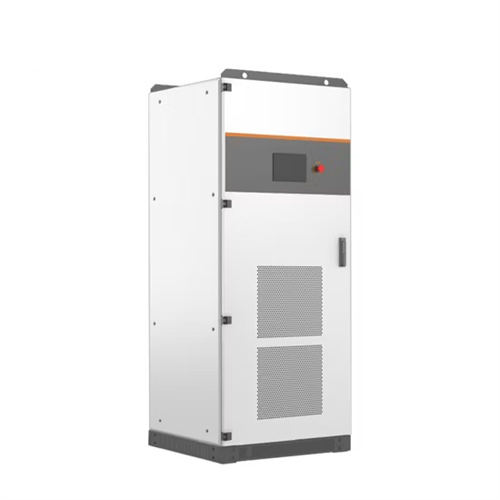Zinc batteries energy storage Japan

Toward a Metal Anode‐Free Zinc‐Air Battery for Next‐Generation Energy
1 Introduction. Zinc-based batteries are considered to be a highly promising energy storage technology of the next generation. Zinc is an excellent choice not only because

Redox flow batteries: Status and perspective towards sustainable
In the current scenario of energy transition, there is a need for efficient, safe and affordable batteries as a key technology to facilitate the ambitious goals set by the European

The Rise of Zinc-Air Batteries in Sustainable Energy
Increased focus on sustainable and eco-friendly solutions: The growing environmental concerns have increased the demand for sustainable and eco-friendly energy storage solutions.Zinc-air batteries are a promising

Overview of the Zinc Rechargeable Battery Used in
NGK INSULATORS, LTD. (hereinafter "NGK") based in Nagoya, Japan, has started operating a zinc rechargeable battery that it is currently developing, after the cell was adopted in a trial for a back-up power supply for

Zinc batteries, a lithium alternative, set for new part
TOKYO/OSAKA -- Japanese chemical group Nippon Shokubai will scale up production as early as next year of a main component in rechargeable zinc batteries, an emerging alternative to lithium-ion...

Sharp begins developing zinc-air flow batteries for
Japanese electronics manufacturer Sharp said this week it has started developing zinc-air flow battery (ZAFB) for the storage of large-scale renewable energy projects. " Based on the zinc-air

Large-scale energy storage business | Sumitomo
After more than a decade of experiment, we developed the EV Battery Station, a large-scale energy storage system that combines hundreds of reused batteries to provide high output and capacity so that it can be connected to the power grid.

Research and Development Initiative for Scientific
In this project, research and development are conducted on "Fluoride Batteries" and "Zinc-Anode Batteries," which use inexpensive materials with fewer resource constraints compared to lithium-ion batteries (LIBs) while

Zinc ion Batteries: Bridging the Gap from
Zinc ion batteries (ZIBs) hold great promise for grid-scale energy storage. However, the practical capability of ZIBs is ambiguous due to technical gaps between small scale laboratory coin cells and large commercial

Hindustan Zinc and JNCASR Collaborate for New-Age Zinc-Based Battery
Udaipur, 21 st August 2024: In a significant step towards advancing the future of energy storage, Hindustan Zinc Limited (NSE: HINDZINC), India''s largest and the world''s second-largest

Metal-Organic Framework-Based Materials for Aqueous Zinc-Ion Batteries
Aqueous rechargeable zinc-ion batteries (ZIBs) featuring competitive performance, low cost and high safety hold great promise for applications in grid-scale energy storage and portable

6 FAQs about [Zinc batteries energy storage Japan]
What is a zinc based battery?
Zinc-based batteries, particularly zinc-hybrid flow batteries, are gaining traction for energy storage in the renewable energy sector. For instance, zinc-bromine batteries have been extensively used for power quality control, renewable energy coupling, and electric vehicles. These batteries have been scaled up from kilowatt to megawatt capacities.
Are zinc ion batteries the future of energy storage?
Zinc ion batteries (ZIBs) exhibit significant promise in the next generation of grid-scale energy storage systems owing to their safety, relatively high volumetric energy density, and low production cost.
Are zinc ion batteries suitable for grid-scale energy storage?
Zinc ion batteries (ZIBs) hold great promise for grid-scale energy storage. However, the practical capability of ZIBs is ambiguous due to technical gaps between small scale laboratory coin cells and large commercial energy storage systems.
How has zinc-based battery technology changed over the years?
Significant progress has been made in enhancing the energy density, efficiency, and overall performance of zinc-based batteries. Innovations have focused on optimizing electrode materials, electrolyte compositions, and battery architectures.
Are zinc-based batteries a sustainable alternative?
However, zinc-based batteries are emerging as a more sustainable, cost-effective, and high-performance alternative. 1,2 This article explores recent advances, challenges, and future directions for zinc-based batteries. Zinc-based batteries are rechargeable, using zinc as the anode material.
Could a zinc battery separator boost the supply chain?
Mass production of separators for zinc batteries remains rare, and the development could give a major boost to the supply chain, helping to popularize a low-cost storage option for renewable energy.
Related Contents
You may like
- Michael Binder and Eos Energy Storage: Powering the Future of Zinc Battery Innovation
- Why Energy Storage Density Is the Titanic-Sized Problem for Cargo Ships
- Australia's Energy Storage Systems Market: Powering the Renewable Revolution
- Energy Storage & Distributed Generation: Powering the Future in Your Backyard
- International Conference on Energy Storage 2019: Key Developments and Legacy
- Wholesale Crimson Energy Storage: Powering the Future of Commercial Energy Solutions
- How to Choose the Right Energy Storage Solution Manufacturer (Without Losing Your Sanity)